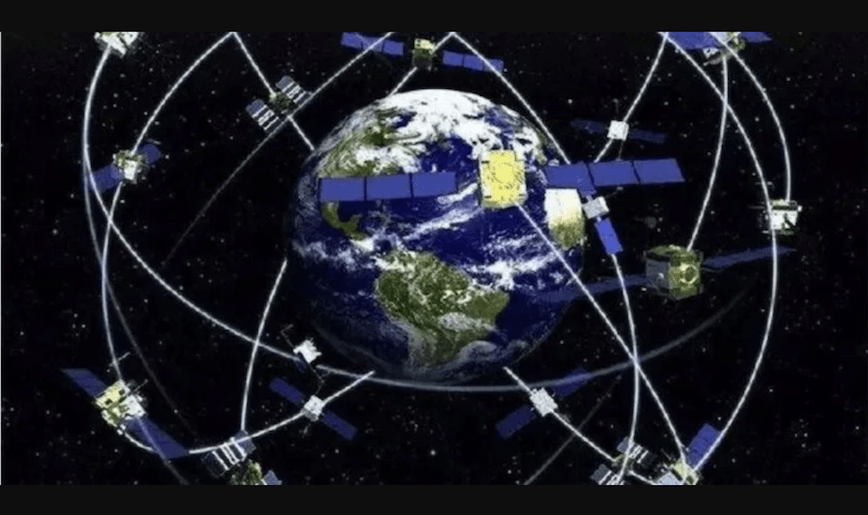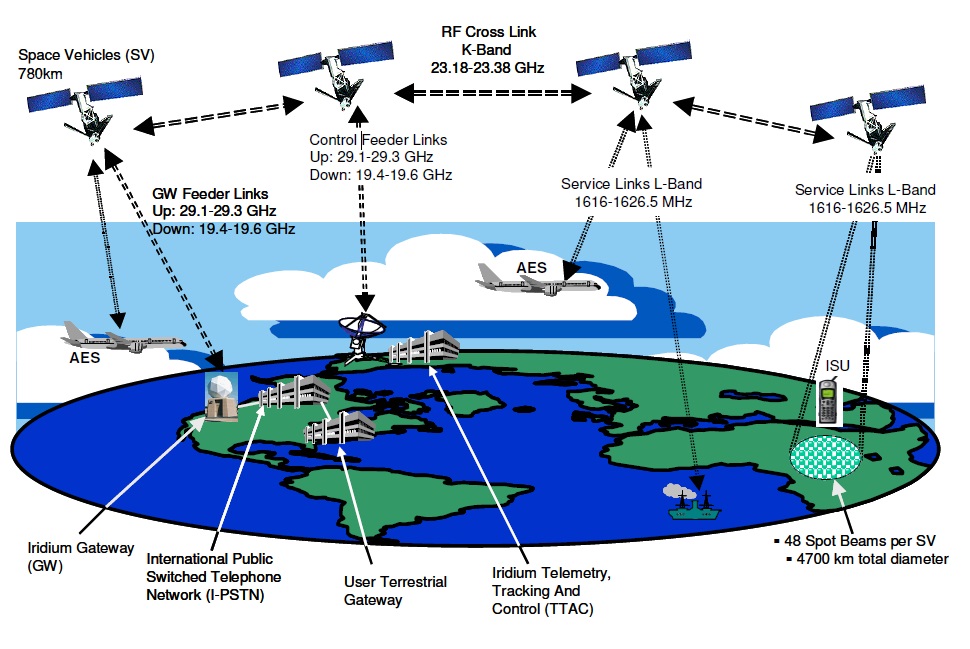Leosat s system using inter satellite laser links for commercial communications is a departure from existing solutions today pairing the speed of fiber with the ubiquity of satellite.
Inter satellite link frequency.
C that the itu r needs criteria and methods of calculation in order to assess the potential for.
Gnss inter satellite link space service volume availability.
Sharing of inter satellite link bands around 23 32 5 and 64 5 ghz between.
Fiber provides high throughput low latency and a growth path.
Optical terminals for inter satellite links.
Iridium satellite frequency description.
L band in the range from 1621 35 to 1626 5 mhz used for both uplink and downlink.
Inter satellite link isl communications provide a direct link within the space segment without need of an intermediate ground segment to relay the data.
An rf link could reach high data rate only using the very large bandwidth available in the millimeter wave region.
In particular q v band or w band frequency range but also the ka band are extensively used.
Between two iridium satellites.
Frequency allocations 22 55 23 55 ghz 24 45 24 75 ghz 32 0 33 0 ghz and 59 3 71 0 ghz.
Laser communication in space is free space optical communication in outer space.
Inter satellite radiocommunication service is according to article 1 22 of the international telecommunication union s itu radio regulations rr defined as a radiocommunication service providing links between artificial satellites.
Spacex s inter satellite link test will pave.
Radio frequency rf technology is the more consolidate technology usable for inter satellite communication links.
The kepler satellites carry an optical resonator a frequency comb and terminals for two way optical inter satellite links the latter links are the basis for time and frequency transfer within the constellation providing the most precise synchronization that has ever been achieved amongst navigation satellites.
Itu has also allocated frequencies.
Needed in order to overcome the propagation loss caused both by the longer propagation path and by the higher carrier frequency scanning antennas will be required to address the relative motion of the navigation satellites and time division.
In outer space the communication range of free space optical communication is currently of the order of several thousand kilometers suitable for inter satellite service it has the potential to bridge interplanetary distances of millions of kilometers using optical telescopes as beam expanders.
Leo satellites are able to provide true global coverage ubiquity and quick deployment.







